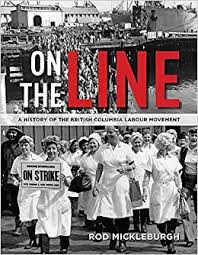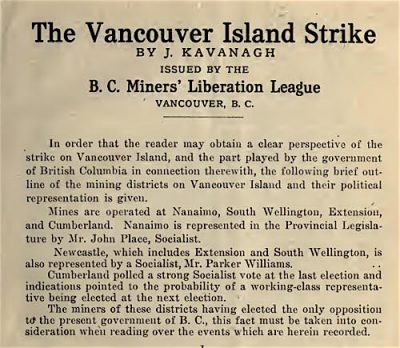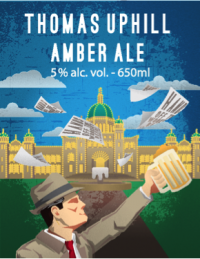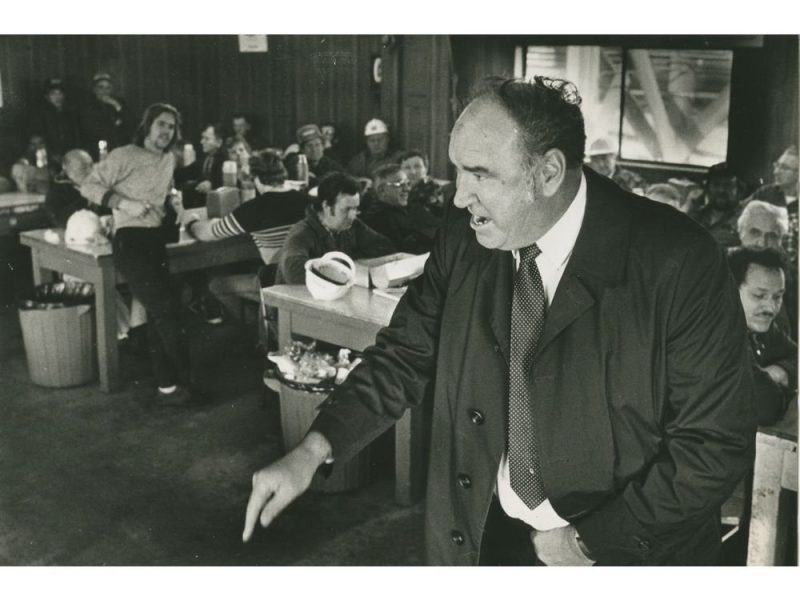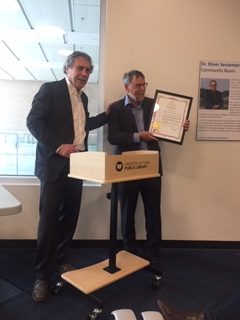I originally posted this June 30th 2006. It basically puts together a repost from the blog of Nanaimo-based Evolutionary Anarchist Larry Gambone and some quotes and arguments used by David Korten. Nothing very original, unless one is tied to the belief that corporations = free market.
Recently I read Dan Hind’s ‘The Threat to Reason: How the Enlightenment was hijacked and how we can reclaim it’ (2008: Verso). There are a couple of good quotes in it about corporations. One is from the Georgia Supreme Court in 1929 (p.76):
‘freed as such bodies [corporations] are, from the sure bounds to the schemes of individuals- the grave- they are able to add field to field, and power to power, until they become entirely too strong for that society which is made up of those whose plans are limited to a single life.’
Hind also quotes 18th Cebtury British lawyer and politician Lord Thurlow who said if corporations (p.77):
‘they have neither bodies to be punished, nor souls to be condemned; they therefore do as they like.’
Anyhow, back five years this month…
This from Larry Gambone…Wednesday, July 12, 2006
Withdraw Corporate Life Support
It isn’t necessary to control corporate capitalism with legislation that restricts its harmful aspects. Simply pull the plug on it – abolish corporate law, patents, eliminate all forms of government assistance, no more state as capitalist goon squad, repeal all anti-worker legislation.
What about corporate law? Limited liability shifts the burden of debt away from the officers of a corporation to the corporation itself. If a corporation with limited liability goes belly-up, you can’t grab the CEO’s personal bank account and mansion. Small shareholders might lose everything, and the workers their jobs and pension funds, but not the bosses.
Limited liability creates a situation like a gambling addict with a rich parent who funds the addiction. When the gambler loses, the parent pays, when the gambler wins, he keeps his winnings. Corporate officers have a free hand to speculate with other people’s money. Such speculation can lose, but it can also win big. Such “big wins” inflate the market share and size of a corporation, furthering the process of concentration and centralization. Put another way, without limited liability, corporate officers would be very conservative with other people’s money and high-risk speculation would not exist. Corporations would tend to be a lot smaller and many would not exist at all.
Eliminating the fraud known as the corporation as the “fictitious individual” would have far-reaching effects. Rights and freedoms were meant for INDIVIDUALS, not corporations. In order to give corporations these rights they invented the lie that a corporation is an individual. Thus, attempts to control corporate advertising and Korporate Krap Kulture are met with loud shrieks of censorship, and since the corporation has the rights of an individual, it cannot be touched. With rights reserved only for living, breathing people, changes might occur within corporate media. If a corporation is no longer an individual, and thus no longer has rights, corporate media can no longer directly censor the editorial staff. The real living individuals working for them could then demand THEIR freedom of speech.
Patents are harmful because they allow the patent holder a monopoly. With a monopoly they can gouge customers through artificially high prices or inferior goods. Patents waste a lot of energy as people invent procedures to get around the patent. A royalty system, like that of song-writing, would allow inventors a good return without these harmful effects. Patents made Bill Gates the richest man in the world. Without patents, he would still be rich, but not anywhere near the same extent.
Government assistance to Big Business comes in a host of ways; tax breaks, cheap loans, free land, government paid R and D, corporate-aiding infrastructure. The right-wingers want to cut government expense, well start here. The fact remains, that without the state hog trough, many corporations wouldn’t exist at all.
Stop the state from acting as a goon squad for the corporations. No more injunctions, no more rubbish about ‘illegal’ strikes. Yes, the government can mediate if it wishes, but quit taking sides with the corporations. No more using the police to break up picket lines or bully demonstrators. The police should only intervene if an actual crime is being committed, and then only with the individual doing it. One person smashing a window should not be an excuse for beating and arresting 50 people. The procedure for union recognition is absurd and only helps the bosses. The moment the majority in a shop are signed up, they become the union, period. No dragging it out for months allowing the boss time to bully the employees.
Freed from state restrictions on striking and union recognition, free from state thuggery, the labor movement would begin to seriously challenge the corporations.
Without its state provided life support systems, corporate capitalism would gradually disappear, in the same way the Mom and Pop hamburger joint faded away thanks to MacDonalds. Only this time the evolution would be in the opposite direction. Nature abhors a vacuum, with the state’s vicious pets dying off, small businesses, small farms and local production would return. I suspect many new ventures would be cooperatives. With a high level of local production and local consumption the vagaries of the corporate created world market would lessen and we could evolve into a ‘steady state economy’ rather than the ecological insanity of ‘growth as God.’
Hey Greens, Hey NDP, are ya listening?
A book I had heard a lot about over the past decade but never actually got around to buying/reading until a couple of months back is David C. Korten’s When Corporations Rule the World (1999 [1995 original edition], Earthscan Books, London). What follows is not so much a review (‘It’s good- read it yourself!‘) as taking various facts/quotes/arguments in it which others may find of use/interest. I wouldn’t call the Korten’s work a free market anti-capitalist tract, as Korten in one of many on ‘the Left’ who confuses ‘corporate capitalism’ with ‘the free market’. He calls those who support corporate capitalism ‘corporate libertarians’; clearly no genuine libertarian should be apologising for the corporations! This caveat aside, Korten recognises that the vision of a market economy proposed by Adam Smith and David Ricardo is the antithesis of the racket run by the corporate behemoths who now bestride the globe.
Anyway, here’s some Adam Smithisms Korten cites (page numbers from When Corporations…):
‘It is to prevent this reduction of price and consequently of wages and profit, by restraining that free competition which would most certainly occasion it, that all corporations, and the greater part of corporation laws, have been established.’- Wealth of Nations (p.56.)
Smith believed that trade secrets confer a monopoly advantage and are contrary to the principles of a free market (p.74).
‘Civil government, so far as it is instituted for the security of property, is in reality instituted for the defence of the rich against the poor, or of those who have some property against those who have none at all.’ Wealth of Nations (p.75).
‘By preferring the support of domestic to that of foreign industry, he [the entrepreneur] intends only his own security, and by directing that industry in such a manner as its produce may be of the greatest value, he intends only his own gain, and he is in this, as in many other cases, led by an invisible hand, to promote an endwhich was no part of his intention.’ Wealth of Nations (p.77). Note that the ‘invisible hand’ for Smith only works for the benefit of society at the level of the domestic, national economy. To say such an ‘invisible hand’ works through the vehicle of transnational corporations operating on a global scale is a complete travesty of Smith’s arguments.
‘People of the same trade seldom meet together, even for merriment and diversion, but the conversation ends in a conspiracy against the public, or in some contrivance to raise prices.’ Wealth of Nations (p.222).
It seems clear from Korten’s work that Adam Smith would hardly be a fan of Actual Existing Capitalism. Neither does it appear that David Ricardo would be enthusiastic about it. As Korten shows (p.78), Ricardo writing in 1817 said that three conditions were needed for free trade between two countries to work for the benefit of the people in both:
(1) capital must not be allowed to cross national borders from a high-wage to a low-wage country;
(2) trade between the participating countries must be balanced; &
(3) each country must have full employment.
(2) trade between the participating countries must be balanced; &
(3) each country must have full employment.
Are there any examples of these three criteria for free trade existing under Actual Existing Capitalism?
Korten also shows that the rise of the corporation took place during the Nineteenth Century . He identifies the American Civil War as the period when corporations in the USA started to dominate the economy and quotes Abraham Lincoln in evidence (p.58):
‘Corporations have been enthroned….An era of corruption in high places will follow and the money power will endeavour to prolong its reign by working on the prejudices of the people…until wealth is aggregated in a few hands…and the Republic is destroyed.’
Korten identifies the moment when the corporations took their modern form as 1886 (p.59). This was the year that the US Supreme Court ruled in the Santa Clara County V Southern Pacific Railroad case that a private corporation is a natural person under the US Constitution. Consequently a corporation is entitled to protection under the Bill of Rights, including the right to free speech and other constitutional protections extended to individuals.
Over a century later, Korten argues, we are living in a world dominated by the corporations. Furthermore, the corporations will fail, Kortern asserts, due to their similarity to the so-called Marxist regimes failed in Eastern Europe (p.89):
‘Both lead to the concentration of economic power in unaccountable centralised institutions- the state in the case of Marxism, and the transnational corporation in the case of capitalism.
‘Both create economic systems that destroy the living systems of the earth in the name of economic progress.
‘Both produce a disempowering dependence on mega-institutions that erodes the social capital on which the efficient function of markets, government, and society depends.
‘Both take a narrow economistic view of human needs that undermines…the community of life that is essential to maintaining the moral fabric of society.’
‘Both create economic systems that destroy the living systems of the earth in the name of economic progress.
‘Both produce a disempowering dependence on mega-institutions that erodes the social capital on which the efficient function of markets, government, and society depends.
‘Both take a narrow economistic view of human needs that undermines…the community of life that is essential to maintaining the moral fabric of society.’
To combat the corporations, Korten recognises the need for a new anti-corporate, anti-big government political movement (p.116):
‘The time is ripe for a realignment of political alliances, which is likely to come into full flower only when the true populists [of ‘the Right?] realise that their enemy is not only big central government but also the giant corporations that owe no allegiance to place, people, or the human interest.







